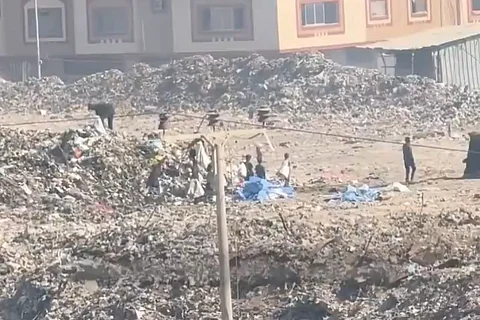

In the Gaza Strip, where an ongoing Israeli blockade has severely restricted fuel supplies, residents have developed an innovative method to convert plastic waste into fuel for transportation and generators.
By collecting discarded plastics — such as barrels, toys, and household items — from streets and bombed homes, locals have created a process to produce gasoline and diesel.
The plastic is manually cut, heated in iron barrels, and transformed through burning, condensation, and distillation into usable fuel.
This labor-intensive process, which takes around 12 hours to yield a few hundred liters, has become a lifeline for many in Gaza, despite the fuel’s lower quality compared to imported alternatives.
The blockade, intensified since March 2025, has eliminated access to cooking gas and driven diesel prices to $20-$26 per liter.
With traditional fuel sources nearly depleted, Gaza’s residents rely on this plastic-derived fuel to power electricity generators, agricultural pumps, and vehicles like tuk-tuks and taxis.
While hospitals and critical services cannot use this fuel due to its impurities, households have turned to it for cooking, using kerosene stoves to replace firewood, which has caused respiratory and eye issues.
Om Said Erheem, a 48-year-old Palestinian, noted the relief of using a kerosene stove, saying it’s a vital alternative unaffected by border closures, though rising demand may increase prices if plastic becomes scarce.
This ingenuity reflects Gaza’s resilience in the face of prolonged crises, including a blockade since 2007 that has repeatedly disrupted power, internet, and medical services.
The United Nations reported that between May 15 and June 9, 2025, Israeli authorities blocked fuel retrieval 14 times, leading to the loss of 260,000 liters.
Despite such setbacks, Gaza’s residents continue to adapt, using plastic-derived fuel to meet essential needs.
While this solution cannot fully address the enclave’s energy crisis—hospitals like al-Shifa and Nasser have faced deadly outages — it underscores a determination to survive.
As Erheem put it, “genocide is the mother of invention,” capturing the spirit of innovation under extreme adversity.